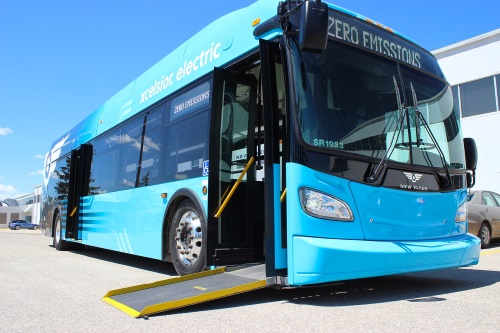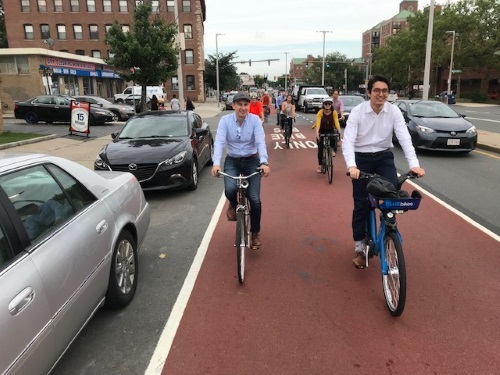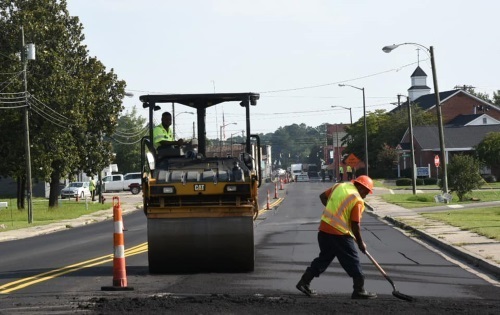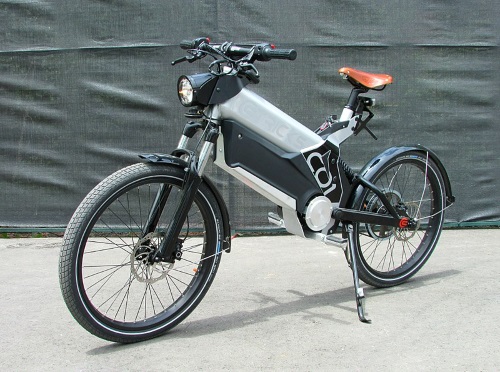FEDERAL ACTION
‘On Time with Tymon’ Provides Preview of AASHTO’s Washington Briefing – AASHTO Journal
House T&I Approves $42.5B in Further COVID-19 Relief – AASHTO Journal
E-BIKE Act Offers Tax Credit for Electric Bicycles – AASHTO Journal
House Panel to Include Climate Policy in Infrastructure Bill, Pallone Says – Transport Topics
Biden meets with bipartisan senators to discuss potential infrastructure bill – The Hill
U.S. Department of Transportation Announces $180 Million Funding Opportunity for Low or No Emission Transit Vehicles & Facilities – FTA (News release)
COVID-19
House T&I Hearing on ‘Lessons Learned’ from COVID-19 – AASHTO Journal
Kentucky Transportation Secretary Jim Gray testifies to Senate committee about state vaccine program – WBKO-TV
COVID-19 pandemic takes toll on Wisconsin transportation fund revenues – Wisconsin State Journal
The FAA Announces Season 2 of Its Podcast The Air Up There! – FAA (Press release)
INFRASTRUCTURE RESILIENCE AND SUSTAINABILITY
As more cars go electric, Missouri’s fleet remains exclusively gas-powered – St. Louis Post-Dispatch
Three Approaches to Investing in Electric Vehicle Charging Infrastructure – Resources
Long-range infrastructure master plan moves closer to reality – Arizona Daily Star
Utah lawmakers face ‘mind boggling’ $1.1 billion in infrastructure requests – Deseret News
Momentum is growing towards investing in America’s crumbling infrastructure – The Hill (Opinion)
AIR QUALITY
When power most needed, ‘peaker’ polluters fire up in Berkshires. Should that continue? – Berkshire Eagle
How inversions affect pollution and air quality – KTVB-TV
UP’s science-based targets approved for reducing GHG – Progressive Railroading
Pre–COVID-19 Subway Air Polluted from DC to Boston, But New York Region’s Is the Worst, Study Finds – NYU Langone Health (Press release)
NATURAL RESOURCES
Another Problem for the U.S. Border Wall: Wildlife Destruction – Bloomberg Green
VDOT selects team to help with water quality project – WWBT-TV
Mississippi River pollution plunged after passage of Clean Water Act, LSU study says – Times-Picayune
Draft Water Permits for Bulk Petroleum Storage Facilities Will Help Protect Chelsea River and Local Communities – EPA (News release)
Appeal Challenges Housing Development on Restorable San Francisco Bay Wetlands – Center for Biological Diversity (Press release)
HEALTH AND HUMAN ENVIRONMENT/ACTIVE TRANSPORTATION
Caltrans seeks public input on active transportation plan survey – Red Bluff Daily News
Turns out biking and walking in winter isn’t a breeze – Daily Herald
More Puget Sound-area foot ferries could cut travel times, new study says – Seattle Times
Scooters Are Rebounding from the Pandemic ‘Nuclear Winter’ – Government Technology
MORPC Matters: Central Ohio shifting toward complete mobility network – ThisWeek (Opinion)
Tampa Named Number One in Nation for Bicycle Friendly Businesses – FDOT (Press Release)
TRB RESOURCES/ANNOUNCEMENTS
FAA Holding Webinar to Present Latest Noise Research – AASHTO Journal
New Mobility Services Combined with Transit Show Potential to Further Accessibility, Efficiency, Equity, Safety, and Sustainability – TRB
Clearing the Skies with Research on Electric Vehicles – TRB
TRB Webinar: Retrospective, Perspective, & Prospective of Transit-Oriented Development – TRB
TRB Webinar: Transportation Impacts in Managing Retreat from High-Risk Areas – TRB
New Report Charts Path to Net-Zero Carbon Emissions by 2050, Recommends Near-Term Policies to Ensure Fair and Equitable Economic Transition and Revitalization of Manufacturing Industry – National Academies of Sciences, Engineering, and Medicine
Quality Water from Every Tap: Proceedings of a Workshop – in Brief – National Academies of Sciences, Engineering, and Medicine
Recalibrate Reality: The Future of NY – Regional Plan Association & 92Y (Webinar series)
Planning and TDM (Part 2): Meaningful Design + Mobility Decisions: Elevating TDM’s Role in Reshaping Our Communities – Association for Commuter Transportation (Webinar)
Webinar Recording: Navigating the Muddy Waters of the Supreme Court’s Maui Decision – National Law Review
FEDERAL REGISTER NOTICES
Forest Service Manual 2200, Chapters Zero, 10, 20, 30, 40, 50 and 70; Forest Service Handbook 2209.13, Chapters 10, 20, 30, 40, 50, 60, 70, 80 and 90; and Forest Service Handbook 2209.16, Chapter 10; Extension of Comment Period for Rangeland Management; Public Notice and Comment for Changes to Forest Service Directives – Forest Service (Issuance of proposed directives; notice of availability for public comment; extension of comment period)
Technical Mapping Advisory Council; Meeting – FEMA (Committee management; notice of Federal Advisory Committee meeting)




